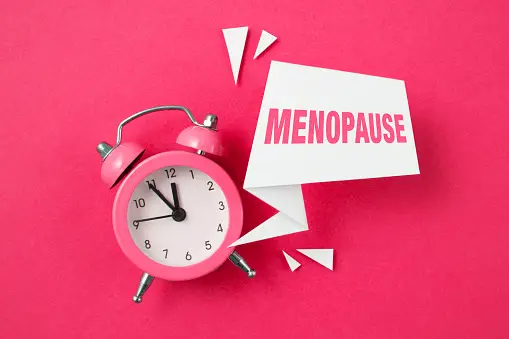By Lisa Russell – October 2025
Menopause … When you suddenly find yourself in another world and don’t know how you got there! It’s not like The Lion, The Witch and The Wardrobe, finding your way through a closet or Alice in Wonderland, disappearing down a rabbit hole or even (for those of us who remember) Jamie and the Magic Torch opening a portal to Cuckoo Land. No, this is something quite different and more than often unexpected.
Historically, menopause was something that just wasn’t discussed, with our mothers, grandmothers and aunts all colluding in the silent embarrassment of “The Change”. Underrepresentation of women’s health issues in medical research, inadequate training for healthcare professionals and lack of public awareness have all led to stigma, negative attitudes and women suffering in silence.
A Global Shift
The impact of menopause can touch every aspect of a woman’s life, from health and relationships to career and economic stability. Thankfully the conversation around it is finally gaining momentum, however, the data reveals we still have a long way to go.
Globally, over 1.2 billion women are expected to be menopausal or postmenopausal by 2030, with 47 million entering menopause each year. It’s estimated that over 13 million women in the UK are currently perimenopausal or menopausal, which accounts for approximately one-third of the entire female population.
There’s an ever-increasing list of symptoms, the most common reported are psychological such as mood disturbances, anxiety, depression, memory loss, panic attacks, loss of confidence and reduced concentration. In addition, we have the joys of hot flushes, night sweats, cold shivers, insomnia, fatigue, hair and skin changes, joint pain and weight gain. Oh, and tinnitus … who knew?! However, not every woman will experience all symptoms and every woman’s journey is different.
Knowledge is Power
The first step in overcoming menopause is knowledge; by understanding the physical, emotional, and mental changes that come with it, we can better prepare and respond. And remember self-care is non-negotiable — by prioritising sleep, nutrition and mindfulness it can dramatically improve wellbeing.
Hormonal shifts during menopause can affect the brain’s stress response, making it harder to regulate emotions or manage anxiety. For many survivors of sexual violence or other forms of trauma, this can feel confusing — like a return to old wounds, especially when symptoms like sleep disruption, brain fog, or panic mirror past experiences.
This isn’t just psychological. The body holds trauma, and menopause can trigger physical memories that feel overwhelming or confusing. Understanding this connection is key to offering trauma-informed support.
Breaking the Silence Together
The good news is, we no longer have to be silent. We can support each other through menopause by building connections, open conversations, creating safe spaces to share experiences, offering validation and providing practical help. Menopause isn’t just a health issue — it’s a societal one; therefore, workplaces, families, and communities all have a role to play. By acknowledging its impact and investing in support systems, we can empower women to thrive and shine during this transformative stage of life.
“She stood in the storm, and when the wind did not blow her way, she adjusted her sails.”
— Elizabeth Edwards
Where to Find Help
If you or someone you know is navigating menopause, the NHS website has some useful info – Menopause – NHS

